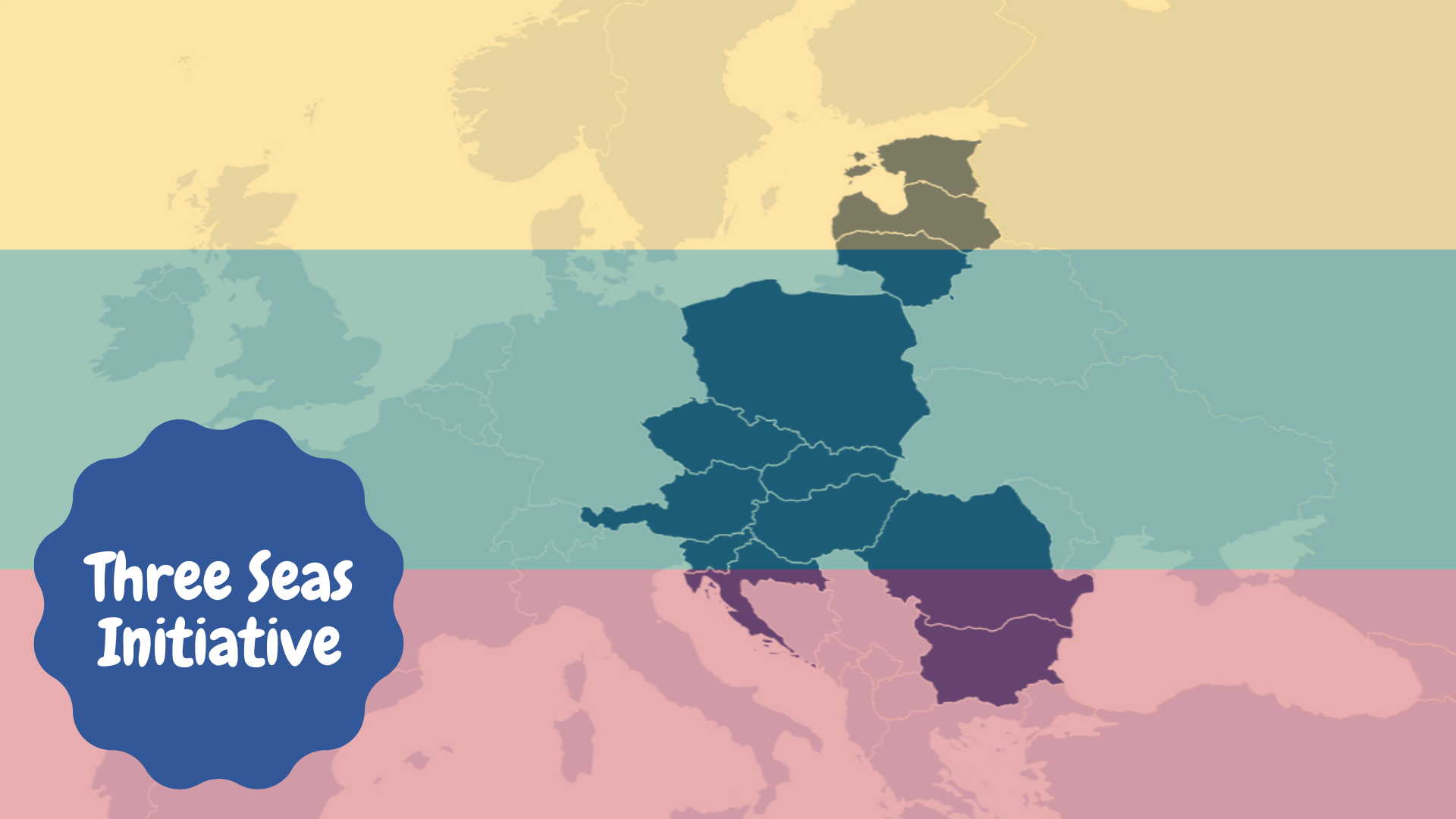Three Seas Initiative
Lithuania’s position on the Three-Seas-Initiative

Similar to its Baltic neighbors Latvia and Estonia, Lithuania puts great emphasis on strong relationships with the EU and the US, since such partnerships serve as protection against Russian aggression. Lithuania joined the Three-Seas-Initiative to further increase national security in addition to bolstering economic development. The country aspires to diversify energy resources with the help of the initiative, which would make Lithuania more independent from Russian gas and thus more immune to Russian blackmailing. While such security considerations played a major role in Lithuania’s decision to join the initiative, the Baltic state is similarly interested in the initiative’s inherently economic and political nature. Lithuania expects the Three-Seas-Initiative to foster the development of transport and digital infrastructure in Central and Eastern Europe, hence contributing to economic development in its member states. Furthermore, Lithuania makes use of the initiative to deepen European integration.
Energy diversification and economic development
The Three-Seas-Initiative’s core objective of improving the infrastructure among its member states is highly welcomed in Lithuania. The Baltic country recognizes the need to invest in better interstate and regional connectedness, as the infrastructure along the North-South axis of Europe is still largely underdeveloped, subsequently hampering trade and economic development in the region. In the eyes of Lithuania, such investments in infrastructure and joint economic projects are particularly important now that economies in the region try to recover from the Covid-19 pandemic. Stronger economic and political cooperation in Central and Eastern Europe should help recover faster from the devastating consequences of the pandemic. In the long-run, the initiative even aims to close the economic gap between Western and Eastern Europe that persists today.
While the initiative focuses primarily on fostering transport, energy and digital infrastructure, investments in energy infrastructure and diversification are generally of higher relevance for Lithuania. As a small Baltic state, Lithuania is very vulnerable to potential Russian aggression and an easy target of Russian blackmailing. By diversifying energy sources with the help of the Three-Seas-Initiative, Lithuania aspires to become more independent from Russian gas. This would certainly provide the country with greater energy security.
Furthermore, this energy independence would translate into economic gains, which in turn functions as a shield against potential Russian aggression. According to Lithuania, this indirect form of security due to enhanced economic development is in fact one of the major benefits of the initiative. Such geopolitical and security considerations are not only expressed by Lithuania; most member states of the Three-Seas-Initiative have considered the geopolitical consequences of the European project for their relationship with Russia. Overall, those states came to the conclusion that membership in the initiative would positively affect their national security – directly by making them more independent from Russian gas, and indirectly by improving their economic standing vis-à-vis Russia and by strengthening their mutual partnerships.
Transatlantic partnership and European integration
Indeed, Lithuania sees the initiative as a great opportunity to strengthen regional cooperation, the Euro-Atlantic partnership, and EU integration. A formal institution to foster cooperation among Central and Eastern European countries, while simultaneously deepening European integration, is happily supported by Lithuania. Therefore it is of utmost importance for the Baltic state that the initiative operates in accordance with the European Union. As long as this criterion is met, Lithuania expects the initiative to positively contribute to the EU market and general cooperation among EU countries. However, Lithuania would endorse even tighter cooperation between the EU and the initiative than is currently the case.
For a small country such as Lithuania, integration into international initiatives is of utmost importance in order to better advocate its interests on the international level. Consequently, within the Three-Seas-Initiative, Lithuania aspires to build stronger strategic partnerships with its fellow member states. Even within the EU, such a coalition can be of great benefit for Lithuania. For its national security, tight partnerships with great powers are particularly relevant. As a relatively small country, Lithuania depends on others regarding its security, especially vis-à-vis Russia. Subsequently, the Baltic country advocates for increased involvement of the US and Germany in the Three-Seas-Initiative. The initiative is supposed to strengthen the transatlantic partnership and hence deter potential Russian aggression. In recent years, Russian cyberattacks have increased and are posing a serious threat to Lithuanian national security. US support and efforts to foster digital infrastructure through the Three-Seas-Initiative are expected to change that by improving the necessary cybersecurity in Lithuania and the entire region.
About the author
Valerie Kornis completed an internship at the Central Europe and Baltic States Project Office. She graduated with a Bachelor of Science in International Relations and Organisations from Leiden University in The Netherlands and is currently pursuing a Master’s degree in Human Rights and Humanitarian Action at Sciences Po in Paris.
